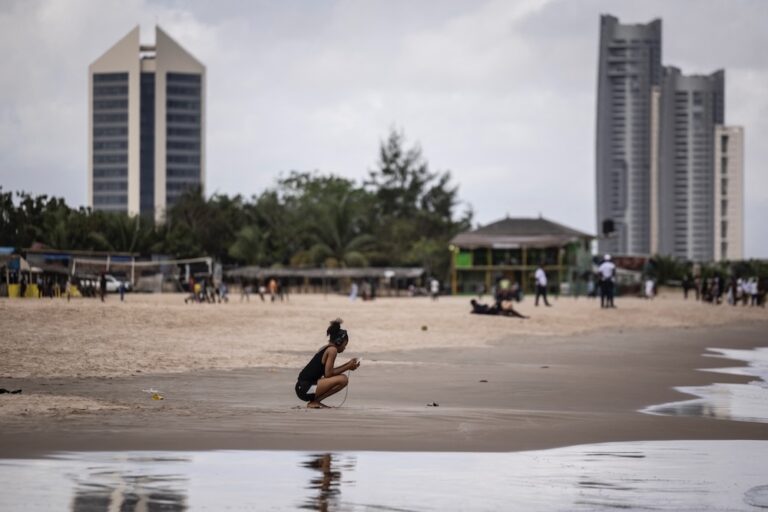Gilbert Sendugwa, executive director of Africa Freedom of Information Centre, charts the milestone to the proclamation for Universal Access to Information Day and why ATI legislation is critical.
This statement was originally published on africafoicentre.org.
15th October 2019 marked yet another key milestone in the quest for access to information globally as the 74th UN General Assembly (UNGA) proclaimed 28th September as the International Day for Universal Access to Information. The AFIC Newsletter had a quick catch up with Gilbert Sendugwa, the Executive Director, to share his views on this milestone and how AFIC hopes to make use of this day in advocacy engagements for Access to Information.
The United Nations General Assembly proclaimed 28th September as the International Day for Universal Access to information; what has the journey been like to this significant achievement?
The UNESCO General Conference resolution of November 2015 that proclaimed September 28th as the International Day for Universal Access to Information requested that UNESCO’s Director-General engage the United Nations Secretary-General (UNSG) to facilitate the endorsement of the Day by the United Nations General Assembly. However, when the UNSG was approached in 2016, his advice was that the resolution should be introduced by member states. This marked the start of our campaign.
We held two strategy meetings in Windhoek, Namibia at which we defined our goals and defined our strategies. We then developed and refined campaign materials and messaging. We held several online calls with UNESCO in Paris and its Liaison Office in New York, as well as internal communication with members of the APAI (African Platform on Access to Information) Working Group. As coordinator and focal point of the campaign, I had several phone calls and online communication exchanges with Mr. Edetaen Ojo, the Executive Director of Media Rights Agenda (MRA) Nigeria and Chairperson, and AFIC Governing Counsel with whom I was implementing the campaign.
In total, we made 4 missions to New York to engage respective Permanent Representatives and Missions to the United Nations to seek their support and sponsorship of the proposed resolution. During the first three, we met individual permanent missions at which we explained the background and need for the resolution in detail. We also clarified and answered many questions.
The last mission in July 2019, we had cohosted with the Permanent Delegation of Liberia, UNESCO and the International IDEA, a promotional dialogue to convince other governments since Liberia’s sponsorship was already confirmed. This was the turning point. Nearly 20 Permanent Missions were represented and spoke in favour of the resolution following compelling submissions and calls by H.E. Ambassador Dee- Maxwell Kemayah, Liberia’s Permanent Representative, UNESCO’s Director for Freedom of Expression and Media Development and International IDEA’s Dr. Massimo Tommasoli.
Together with the Permanent Mission of Liberia and UNESCO, we scaled up following on these commitments and engaged other permanent missions we initially had not engaged. By October 14th, the eve of the date when the draft resolution was scheduled to be considered, 20 member states had confirmed co-sponsorship given the amount of mobilization we had used. By the time of the meeting, 29 member states had confirmed co-sponsorship and the resolution was unanimously adopted. It was indeed an evening of sheer joy!
With this year’s theme, Leaving No One Behind, what does this mean as far as the Right of Access to Information is concerned?
We are living in a divided world; in almost all aspects of life. 26 richest people own 50% of all the world’s wealth. This wealth translates to everything owned by 3.8 billion people! Access to information has enabled the rich to know about opportunities and go for them, turning information into wealth. On the other hand, the poor are disadvantaged even getting information on whether governments prioritize lifting people out of poverty, their healthcare; education of their children is a complete nightmare. Leaving No One Behind is a noble call. Behind hidden information is exploitation, abuse of power, denial of opportunities and services. If everyone can access public information and use it, it is possible that the number of poor people in the world would reduce by half in less than five years.
One hundred twenty-five countries have adopted RTI laws. Uganda enacted an Access to Information Law in 2005, what is the progress on the status of implementation of this law in Uganda?
Ahead of the 2019 High-Level Political Forum we conducted studies in Corte d’Ivoire, Sierra Leone, South Africa, Tunisia and Rwanda. Our findings indicated that whereas there has been progress in some areas like awareness-raising and training of some officials, there is more to be done. Capacity building for public officials, civil society and journalists, enforcing compliance by public agencies to disclose requested information and proactive disclosure, as well as strengthening oversight for RTI implementation. In all cases where access to information has been enabled there have been improvements. Theft being curbed and medicines becoming more available in health centres, the supply of school textbooks being streamlined following exposure and girls’ absenteeism being curbed following exposure of corruption in the sanitary pads programme and loopholes being addressed. One of the most energizing experiences is the community ownership of government programmes following their access to contracts and tracking their implementation.
A number of countries around the world have implemented some form of freedom of information legislation, what are some of AFIC’s interventions towards this cause?
AFIC has supported campaigns for the adoption of ATI laws in many African countries and this continues as more than half of African Union member states are yet to make progress of on this SDG target regarding adoption and implementation of access to information laws. We have also invested in capacity building efforts and produced training manuals for journalists, civil society and public officials. Our training programmes have enhanced capacities, creating not only the demand for information but also improving public sector responsiveness. Within the open contracting sphere, we have caused an appreciation of how disclosing procurement information and enabling citizen monitoring of contracts helps to improve not only value for money but also fair business practices and better services for the people. Our right to information and open contracting programmes across the continent have demonstrated how lifting people to better life and opportunities in Africa is not a dream but a realistic possibility. We have also been active in campaigning for the adoption of key instruments and platforms at the regional and global level as well as monitoring and shadow reporting. Our reports have been useful in enabling treaty bodies to properly engage duty bearers.
Moving forward, now that we have the International Day for Universal Access to Information, what does it mean for AFIC and what significance does it have on the implementation of the RTI laws in Africa?
The assessment of the Millennium Development Goals framework revealed huge gaps between political commitment and actual implementation. Proclamation of September 28th as the International Day for Universal Access to Information creates a platform for all stakeholders in each of the countries and globally to discuss ways in which sustainable development can be realized given that access to information is not only an SDG target but also the oxygen of other SDGs. It is also the means to determine the extent to which member states and stakeholders are meeting their commitments.
Thirty (30) African countries are yet to adopt access to information laws which represents slow progress on SDG 16.10.2. Our new strategic plan will aim to ensure that at least 5 countries per year adopt ATI laws while promoting implementation in all countries that have ATI laws.



